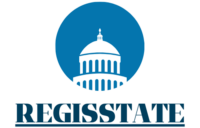In today’s fast-paced world, ensuring one’s affairs are in order is more than just a wise decision—it’s a necessity. Whether it’s organizing financial documents, drafting a will, or simply making sure loved ones know where to find important information, having everything neatly arranged can provide peace of mind. This proactive approach not only safeguards personal interests but also alleviates potential stress for family members during challenging times.
Many people underestimate the importance of preparing for the unexpected. Life’s unpredictability means that having a clear plan can make all the difference. From medical directives to asset management, keeping affairs in order helps individuals maintain control over their future. It’s about taking charge now to protect oneself and loved ones later.
Affairs In Order
Organizing one’s affairs isn’t merely a prudent action but a crucial step in managing life’s unpredictabilities. It ensures smoother transitions during personal emergencies or when life’s unexpected events occur.
The Importance Of Getting Affairs In Order
Arranging personal matters promotes peace of mind by reducing the emotional and logistical strain on family members during crises. Authoritative sources indicate that documented financial assets, wills, and directives safeguard an individual’s wishes. Without this preparation, families might face legal complexities and emotional distress.
 Legal Documents: Legal instruments, like wills and powers of attorney, establish clear instructions for managing the assets or health care decisions during incapacitation or after death.
Legal Documents: Legal instruments, like wills and powers of attorney, establish clear instructions for managing the assets or health care decisions during incapacitation or after death.- Financial Organization: Financial records, such as bank accounts and investment portfolios, kept in order allow for easy access and management in case of emergencies or death.
- Personal Inventory: A catalog of personal belongings, including valuable assets, eases distribution according to one’s wishes and avoids potential disputes.
- Healthcare Directives: Advance directives inform medical professionals and family members about preferred medical treatments, ensuring decisions align with personal beliefs and values.
Essential Documents
Essential documents play a critical role in organizing personal affairs, ensuring they’re easily accessible during emergencies. They encompass legal, financial, and medical information crucial for executing an individual’s wishes.
Legal Documents
Legal documents provide clarity on rights and responsibilities. A will outlines how assets should be distributed after death, reducing potential family disputes. A power of attorney grants a trusted individual the authority to make decisions if someone becomes incapacitated. Living wills and healthcare proxies specify medical treatment preferences and appoint someone to make healthcare decisions when individuals can’t.
Financial Documents
 Financial documents offer a comprehensive view of a person’s monetary situation. Bank statements, investment accounts, and retirement plans provide insight into financial health. Details like outstanding debts, mortgage information, and credit card accounts help in managing liabilities. Insurance policies, including health, life, and property, offer protection and need to be clearly documented. Tax returns from the past few years provide a complete financial history.
Financial documents offer a comprehensive view of a person’s monetary situation. Bank statements, investment accounts, and retirement plans provide insight into financial health. Details like outstanding debts, mortgage information, and credit card accounts help in managing liabilities. Insurance policies, including health, life, and property, offer protection and need to be clearly documented. Tax returns from the past few years provide a complete financial history.
Medical Records
Medical records ensure proper healthcare and treatment continuity. A comprehensive list of medications, allergies, and medical conditions is essential for healthcare providers. Immunization records and test results provide critical health information. Medical history, including past surgeries and treatments, helps inform future medical decisions. When these documents are organized, they facilitate smoother medical care management.
Organizing Personal Information
Properly organizing personal information ensures seamless transitions during life’s inevitable changes.
Digital Accounts And Passwords
Storing digital account details, including passwords, securely is crucial for personal information organization. Use password managers like LastPass or 1Password to keep logins accessible and safe. Include information for bank accounts, social media, subscriptions, and online services. It’s vital these are updated regularly, with access shared with trusted family members or a legal representative.
Contact Lists
 Maintaining updated contact lists offers significant benefits in emergencies. Collect and organize names, phone numbers, addresses, and emails of family, friends, and key service providers. Digital tools like Google Contacts or Apple’s iCloud can streamline this process. Ensure that critical contacts, such as healthcare providers, legal advisors, and financial professionals, are easily reachable.
Maintaining updated contact lists offers significant benefits in emergencies. Collect and organize names, phone numbers, addresses, and emails of family, friends, and key service providers. Digital tools like Google Contacts or Apple’s iCloud can streamline this process. Ensure that critical contacts, such as healthcare providers, legal advisors, and financial professionals, are easily reachable.
Achieving Success
Getting one’s affairs in order is a crucial step in ensuring peace of mind and reducing stress for both individuals and their families. By organizing essential documents and personal information, people can prepare for life’s unexpected events and secure their legacy. Utilizing resources like checklists and professional assistance can streamline this process, making it more manageable. Taking proactive steps today not only safeguards personal wishes but also alleviates potential burdens on loved ones, ensuring smoother transitions during challenging times.



